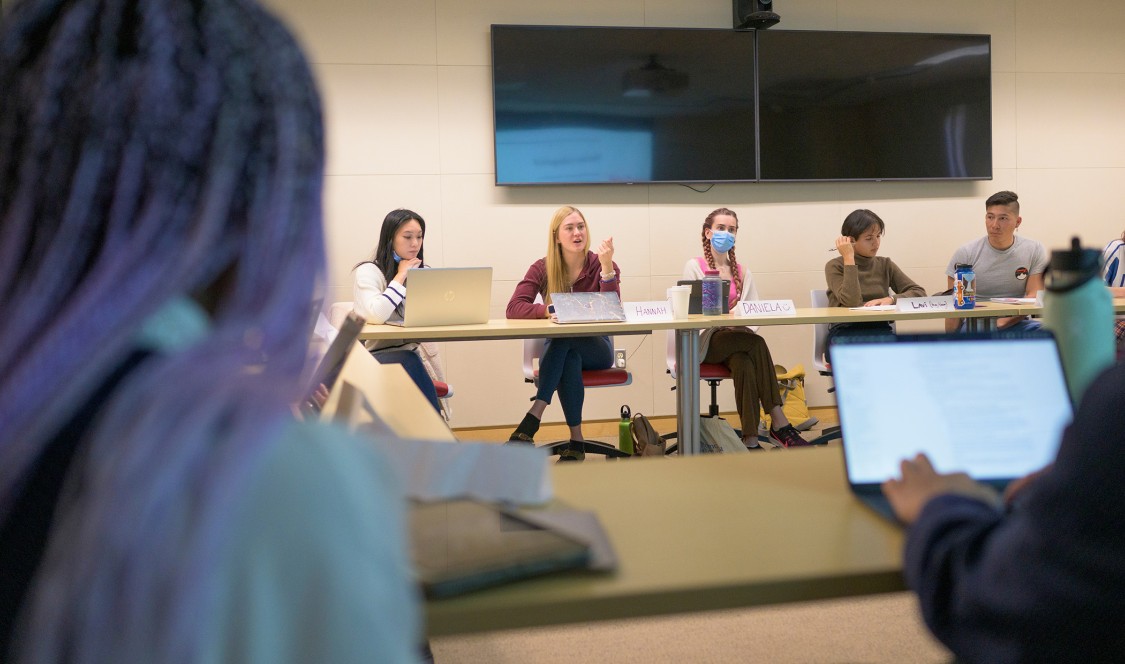Course Description:
How do social stereotypes, biases, and prejudices affect our ability to objectively and ethically navigate our social environment? By reading contemporary works in philosophy, psychology, and computer science, students in this class will address the questions of what are social stereotypes, biases, and prejudices? (Phil. of Mind and Metaphysics); how do they affect good routes to truth and knowledge? (Epistemology); how do they affect our ability to engage ethically with one another? (Moral Philosophy); and how do they relate to larger contemporary issues in machine learning and social justice? (Applied Philosophy).
For years, Philosophy Prof. Gabbrielle Johnson yearned to teach an interdisciplinary course on the nature of bias.
This past spring semester, she got her wish with Phil. 198, an advanced seminar where she and her students explored bias by reading work from the three disciplines of philosophy, psychology, and machine learning. In the end, they uncovered how bias operates.
Bias, Johnson explained, is ubiquitous. It exists in people, groups, organizations, news programs, and political parties. Technology, especially in the form of algorithms, is a more recent form. Johnson and her students explored what, if anything, all of these biases have in common and what more can be done to understand and mitigate bias.

Phil. 198 has an added dimension that especially excites her. In April, Johnson hosted a conference on the nature of bias that was a continuation of the themes of the course sponsored by the Gould Center for Humanistic Studies and featuring several of the scholars whose papers the students read in the course. They attended the conference in full. “It was an opportunity for deeper learning and more extended conversations,” said Johnson.
“I do feel like the interdisciplinary approach and the bringing together of diverse perspectives is so important right now... because researchers in these areas basically have pre-supposed that there might not be a lot of conversation between them. A lot of the research has been siloed, without a lot of dialogue across them,” said Johnson.
Johnson pointed out that technological innovations are picking up and exacerbating human social bias, so there is an “imperative for some interdisciplinary understanding of the commonalities between the different types of bias.” The class and conference examined how seemingly disparate cases of social bias can be unified in order to combat “pernicious societal trends.”
Johnson had a lot of faith in her students—this was after all an advanced seminar. They led the class discussion, and she was their guide. “The onus was on them to become the pedagogy they want to see in the world,” she explained.
Moreover, Johnson has a guiding principle in her classes, something philosophers call the “principle of charity.” It calls on students to engage with one another in respectful ways and give one another the benefit of the doubt.
“I would love for them to remember all the readings on bias, but some of it will fall away. That’s inevitable. But I think what will stick with them is some of these skills about how to engage with others,” Johnson said.

